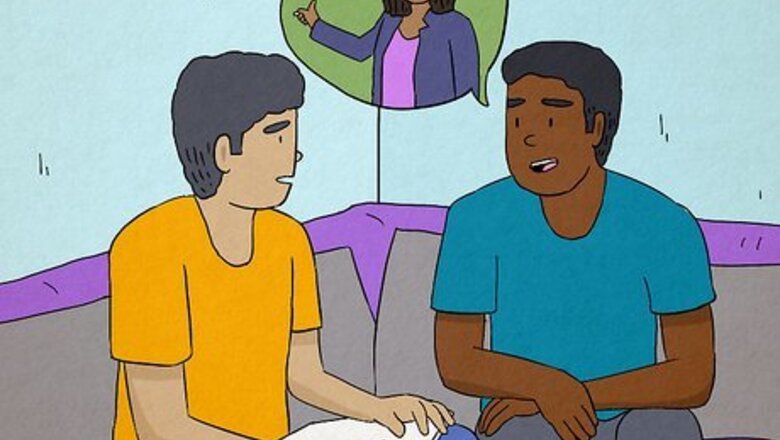
views
Avoiding Confrontation
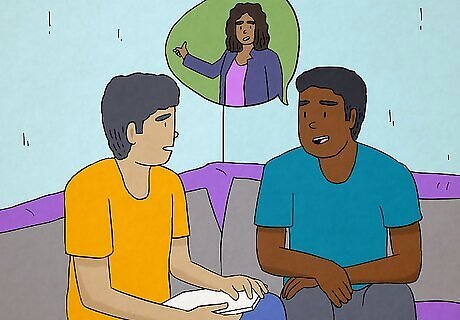
Ask former students about their experience. Students who have interacted with this teacher before may be able to offer insight into the teacher's personality that could help you better navigate the class. They may also be able to offer coping strategies. Be wary of the advice of students who have a bad reputation with most of their teachers. Try and find out the types of things the teacher respects in a student.

Be on time for class. Showing up late can really get on a teacher's nerves. If they have to stop teaching to wait for you to take your seat and settle in they may be tempted to make an example out of you. Try to aim for getting to class at least ten minutes early so you can find a seat and be ready with your notebook or laptop out when class officially begins.
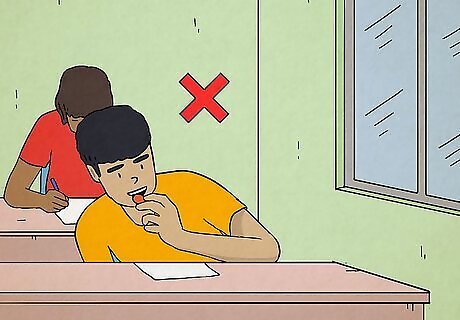
Avoid behaviors that upset the teacher. Some teachers might come out and tell you what some of their pet peeves are, but others you’ll have to be on the lookout for. If you see another student get scolded for something, take note and avoid that behavior if you can. Don’t talk socially with friends during class. Keep your cellphone on silent and tucked away in your book bag. Don’t eat food during class.
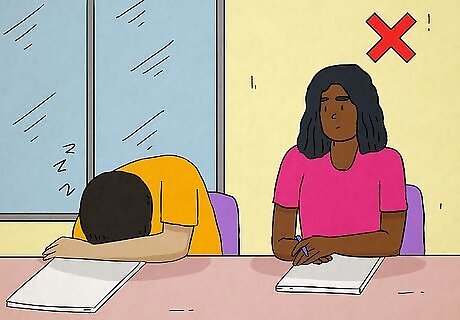
Sit away from known troublemakers. Try and find a seat in class that is near the middle but away from students you know tend to act out or do other things that draw the teachers attention. You'll avoid being lumped together with excessive talkers or chronic sleepers if you steer clear of sitting near them altogether.
Participating in Class

Learn the classroom rules and expectations. Many teachers make their expectations clear at the beginning of the semester. Learning these quickly and adhering to them will give the teacher fewer reasons to pick on you. Keep a copy of the syllabus with you during class as a reference. Be sure to follow any special formatting rules they may have for homework assignments.
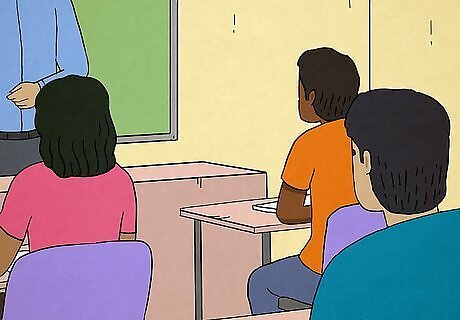
Look attentive. Teachers want students to listen to their lessons. Looking interested and engaged shows them that you take your learning seriously. Sit up straight at your desk. Look up from your notebook to show you are paying attention.
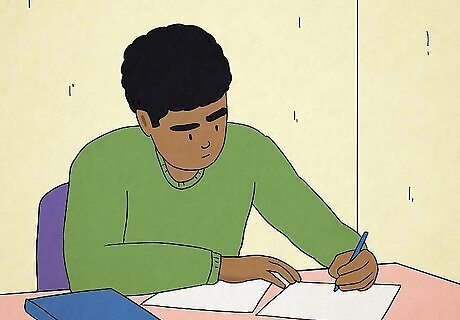
Study for quizzes and tests. Make sure you are setting aside enough time to prepare for exams in the teacher's class. Maintaining a good grade in the class will show the teacher you are invested.
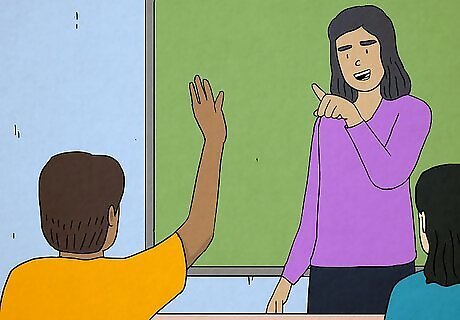
Participate a moderate amount. Make sure you are raising your hand and answering questions a couple of times per class to show you are interested. Don’t over do it. Some teachers can be just as put off by the teacher's pet as they can a slacker student.
Keeping The Peace
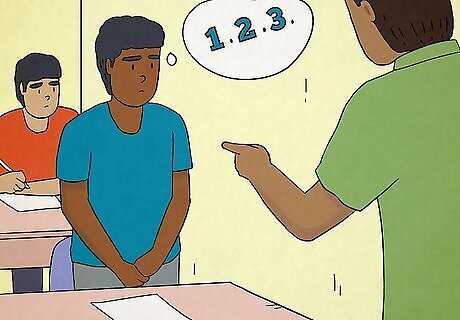
Stay cool. It’s easy to lose your temper if you feel like you are being treated unfairly by a teacher. Before you react, take a deep breathe and count to ten. Try and give yourself enough time to weigh the situation in your mind and to calm your nerves. Lashing out at an unfair teacher will usually just get you in more trouble. Stay calm and react mindfully.
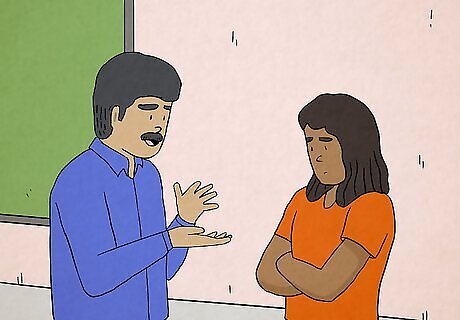
Let little things slide. Pick your battles. Don’t let minor annoyances with the teacher get angry responses out of you. Things like a rude tone of voice can be hurtful, but might not be worth escalating into a bigger issue.
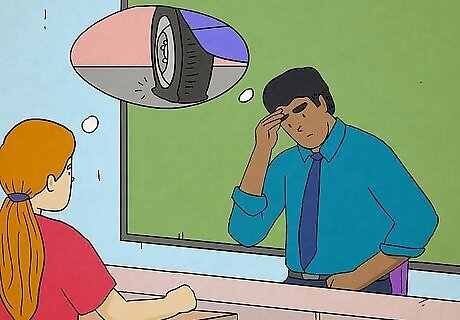
Try to see things from their point of view. Teachers are just people. They may be having a bad day or dealing with particularly difficult personal problems. Ask yourself what might be going on in the teacher's life that would cause them to act this way. Are they really angry because you forgot to put your name on your assignment, or are they frustrated because their car got a flat tire and they were late to work that morning?
Confronting the Problem
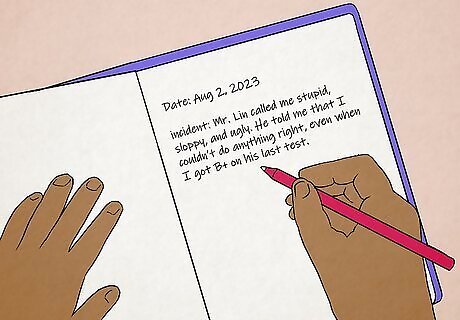
Keep a list of the teacher's actions and words. You'll want to make sure you are documenting anything that concerns you about the teachers behavior or classroom policies so that you have an accurate account you can present to an outside party if need be. Don't just rely on memory. Write down dates, specific incidents, parties involved etc. Be thorough.
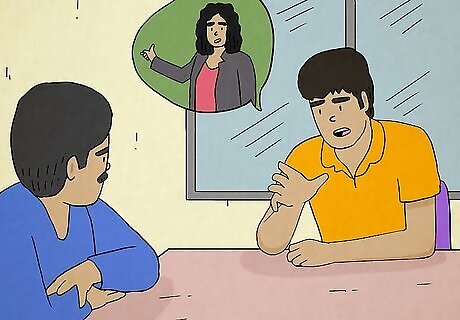
Tell your parents you are having trouble with your teacher. Hopefully, your parents will be able to reassure you and help you come up with a plan to solve the problem on your own. If not your parents may need to set up a meeting with the teacher. Make sure your parents don’t go into the meeting angry. You and your parents can decide if you need to be present for this meeting. Ask your parents to call up a classmate’s parents to see if they are having similar trouble with the teacher.

Ask the teacher what you can do to be more successful in their class. This puts the responsibility back on them. Some difficult teachers are trying to gain authority over the class. Asking them for advice shows that you see them as a respected authority figure. "What types of things do you look for when grading homework assignments?" "I'm really enjoying your class, I just want to make sure I'm getting the most out of it." See if they offer extra credit opportunities. Ask if they have suggestions for the best way to study for an upcoming test. "Are there any supplemental texts you would suggest I take a look at to further my understanding of some of the material?"
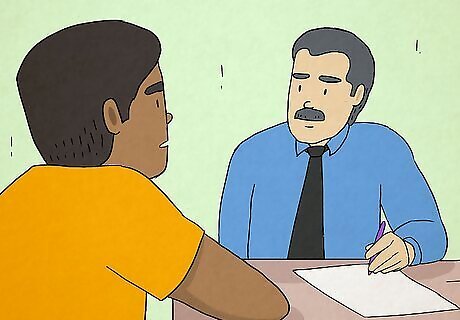
Talk to a school counselor or administrator. If you continue to feel unfairly treated by your teacher then you should take your concerns higher up. Ask for a meeting with the vice principle or Dean. Try to separate the person from the issue. Don’t say I’m having trouble with Mr. A. Say you are having trouble in Mr. A’s class. Avoid using derogatory language about the teacher. Write a list of your concerns before the meeting. Express your concerns in a clear and calm voice.
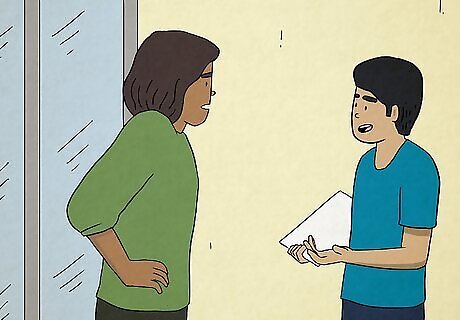
Confront the teacher. Before you take the problem to an outside source, see if you can work it out one on one with the teacher. It is possible they aren’t aware you feel treated unfairly. Choose an appropriate time to talk with your teacher. Either after class or at the beginning or end of the school day. Don’t be aggressive or rude. Tell them how you feel. "I'm sure it's not intentional, but sometimes I feel singled out in class in a way that makes me uncomfortable." Be open minded to the teacher’s point of view. "I understand you have reasons for the way you do things." If you find yourself getting upset, walk away until you have calmed down. "Do you mind if we take a break from our conversation? I'm feeling very overwhelmed and I need a minute to gather my thoughts."

















Comments
0 comment